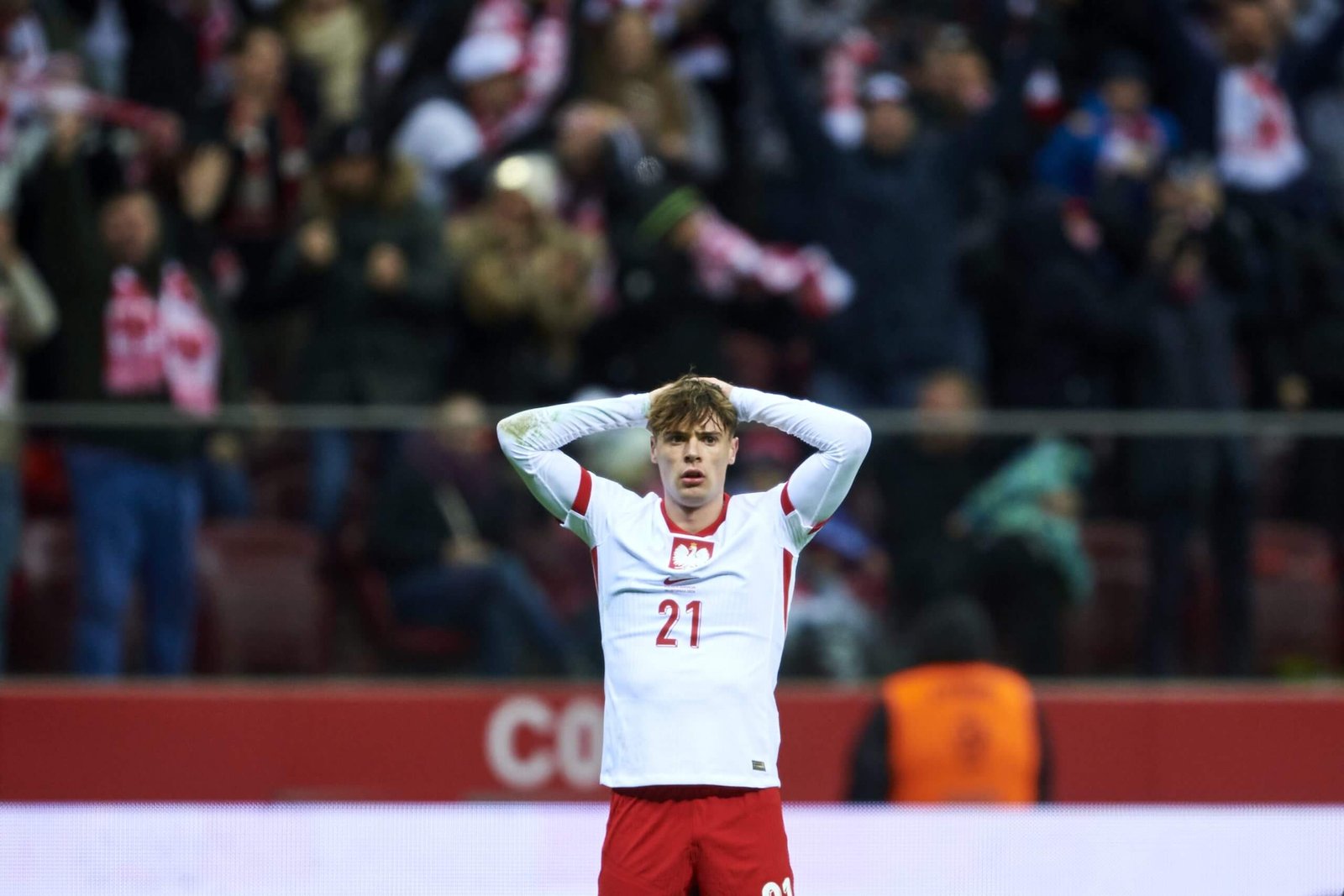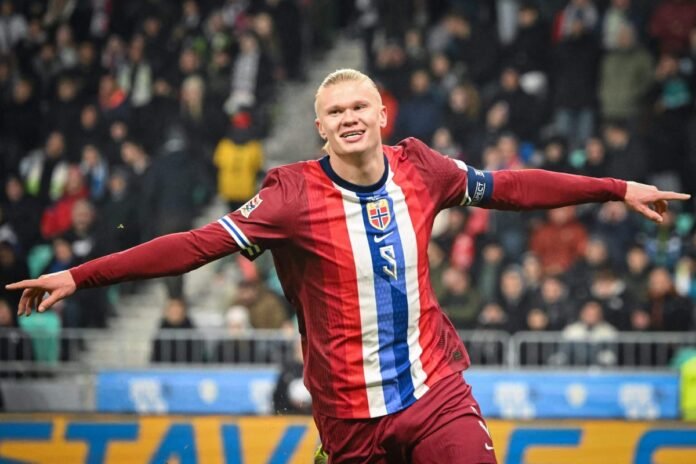The 2024-25 Nations League’s group phase ended on Tuesday night, so we now know the eight in-form nations still vying for the trophy, which countries have fallen down UEFA’s ladder and the teams that made history.
Among the risers this time are England. Relegated without a win in their six Group A3 matches under Gareth Southgate in June and September 2022, interim head coach boss Lee Carsley successfully led them back into the Nations League’s top tier with two convincing victories this week, against Greece and the Republic of Ireland, in his final games in charge before new appointment Thomas Tuchel starts work in January.
San Marino, 210th (aka, last) in FIFA’s world rankings, were the feel-good story of the autumn phase, gaining promotion to League C thanks to their first away win. That victory could even help the tiny, landlocked nation in central Italy qualify for the 2026 World Cup. More on that later.
The group phase is complete but the games are far from over as the League A quarter-finals (to be played in March), semi-finals and final (in June) will take place next year, while the knockout play-offs — also being held in March — will decide the competition’s remaining promotion and relegation spots.
Who is through to the quarter-finals?
The top two in the four League A groups have advanced to the final eight.
Defending champions Spain will be there after topping group four, along with fellow winners Portugal (group one), France (group two) and Germany (group three). Those four countries will be seeded for the draw on Friday, November 22, which will decide the quarter-final fixtures to be played in the March 2025 international window.
Croatia, Italy, Netherlands and Denmark, the runners-up in the League A groups, are also in the quarter-final draw and will each play one of the group winners, with the latter sides at home for the deciding second legs. It should be noted that teams cannot be drawn against a country they faced in the group stage — for example, Germany won’t meet the Netherlands.
As well as the trophy itself, there is significant prize money on offer. For the last campaign, Spain were awarded €10.5million (£8.9m, $11.7m) and runners-up Croatia received €9m.
Who has been promoted to League A?
England’s Anthony Gordon, centre, celebrates scoring against the Republic of Ireland (Alex Pantling/Getty Images)
England made an immediate return to League A after overcoming their home loss to Greece in October to top Group B2. With both teams level on 15 points, Carsley’s men won the group on head-to-head goal difference, making up for that 2-1 Wembley defeat with a 3-0 victory in Athens on Thursday.
Each of the four League B group winners earn automatic promotion, which means Erling Haaland’s Norway will join England in League A. The Manchester City striker scored a hat-trick as the Norwegians, who lost once in their six games, finished off with a 5-0 home win against Kazakhstan. Wales beat Iceland 4-1 on Tuesday night to seal their spot in League A and the Czech Republic complete the automatically promoted quartet after a 2-1 win over Georgia.
Four more places in the top tier will be decided by the knockout round play-offs in March. These will be home-and-away promotion/relegation ties between the third-placed League A teams and the second-placed finishers in League B.
As with the quarter-finals, the play-off draws will take place in the Swiss city of Nyon from 1pm UK time (8am ET) on Friday. The games themselves will be held towards the end of March, in the same window as the League A quarter-finals.
Belgium, sixth in FIFA’s world rankings, are at risk of relegation from the top tier after four losses in the six matches, as are Scotland, Hungary and Serbia. All four finished third in their League A groups. The four teams hoping for promotion from League B through the play-offs will be Ukraine, Greece, Austria and Turkey.
Who has been relegated?

Poland suffered a 2-1 loss to Scotland on Monday (Adam Nurkiewicz/Getty Images)
Poland needed a point at home against Scotland on the final matchday to avoid automatic relegation, but lost 2-1 to a 93rd-minute goal to drop to League B. Switzerland, who came within a penalty shootout against England of the Euro 2024 semi-finals back in the summer, also went down from League A, along with Bosnia-Herzegovina and Israel.
Finland failed to collect even a single point from their six matches in League B so will play in League C next time, as will Kazakhstan, Montenegro and Albania, who also finished bottom of their groups.
Lithuania and Azerbaijan will be relegated to League D, the Nations League’s bottom tier, after being the worst-ranked two teams in League C with zero points and one point.
Other relegations will be determined in those knockout play-offs in March.
What about League D?
San Marino made history on Monday.
Going into the 2024-25 Nations League having not won a competitive game for 20 years (140 matches), in an unlikely turn of events they secured promotion from League D, where there are only six nations divided into two groups of three) thanks to two wins in two months against Liechtenstein and a draw with Gibraltar. Until Monday’s 3-1 victory in Liechtenstein, San Marino had never won away.
The team who prop up FIFA’s rankings will play in the third-tier League C after topping Group D1.
And as one of the overall competition’s 14 group winners, San Marino could be eligible for an extra chance at qualification for the 2026 World Cup.
They will be involved in the usual qualifiers, which see the various nations split into 12 groups of either four or five. The 12 winners automatically qualify for the 48-team tournament being co-hosted by the United States, Canada and Mexico, leaving four more European spaces available via play-offs. These will be contested by the 12 runners-up from qualifying plus the four best-ranked sides among the 14 Nations League group winners who do not finish first or second in their World Cup groups.
San Marino could sneak in this way, but as they are the lowest-ranked Nations League group winners, they would need nine of their 13 fellow group winners to qualify directly for the World Cup. And even if that happened, there would still be the small matter of beating whichever teams they were drawn to face in two rounds of home and away play-offs.
Moldova are heading back up to League C after topping their section with nine points, while Gibraltar and Malta still have promotion hopes through their March play-offs against Latvia and Luxembourg, the two best-ranked fourth-placed finishers in League C.
What does this mean for next time?
Under Tuchel, England can chase the Nations League trophy once again when the competition is next played in 2026-27, while Norway’s Haaland and Martin Odegaard can test themselves in competitive matches against the best international sides, despite their country’s failure to qualify for a men’s World Cup or European Championship since 2000.
The knockout round play-offs and quarter-finals were introduced as extra rounds for the 2024-25 Nations League. With a global debate around player workload and how much football is too much football, their success will be closely monitored to see if this format will be repeated when the competition returns after the 2026 World Cup.
(Top photo of Norway’s Erling Haaland: Jure Makovec/AFP via Getty Images)
Read the full article here


